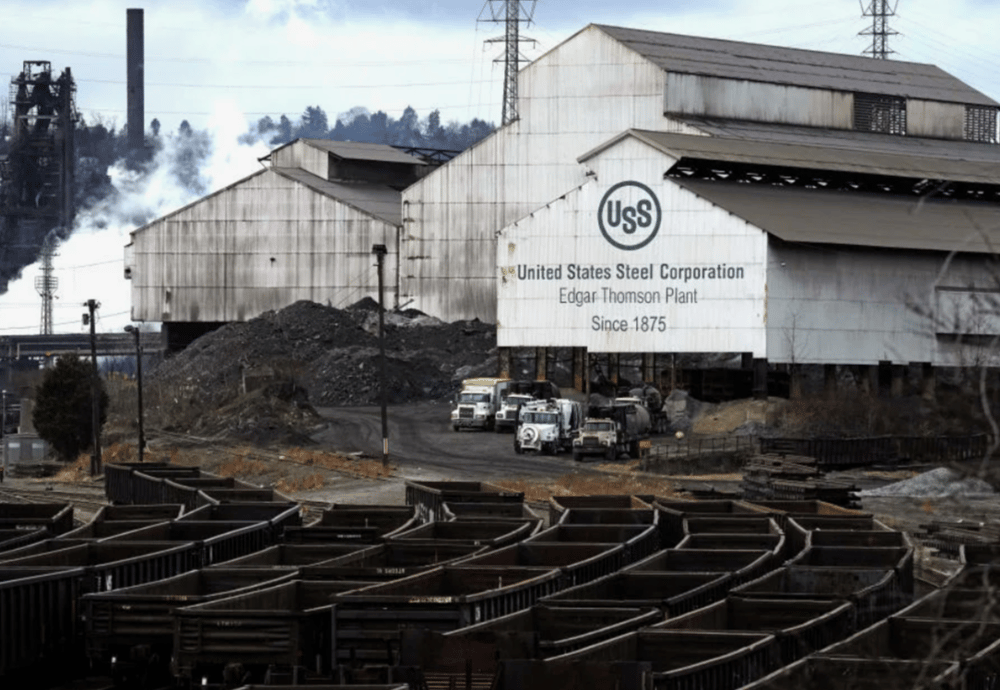U.S. Steel Tariffs Hit EUR Stocks: Salzgitter, Thyssenkrupp Drop Amid Trade Shock
Escalating trade tensions between the United States and Europe have reignited investor concerns after the U.S. administration announced plans to double tariffs on imported steel to 50%. The policy shift, aimed at protecting domestic producers, has sent shockwaves through the European industrial base, particularly affecting German steelmakers and their listed equities.
Germany’s Salzgitter AG $SZG.DE, the country’s second-largest steel producer, issued a rare public statement warning of the adverse macroeconomic implications for Europe’s export-oriented economies. The announcement came as steel-related equities across Europe dipped amid mounting fears of a broader trade retaliation cycle and displaced steel flooding EU markets.
Policy Impact on German Industry and Equity Markets
The U.S. tariff policy, widely viewed as unpredictable and increasingly protectionist, has drawn criticism from corporate leaders and EU officials alike. Gunnar Groebler, CEO of Salzgitter AG, stated that the measures not only threaten transatlantic trade relations but also distort competitive conditions within Europe, exposing domestic producers to both direct and indirect pressures.
Beyond the immediate export losses to the U.S., Groebler highlighted a second-order effect: the redirection of cheaper Asian steel—originally destined for the U.S.—into the European market. This import substitution dynamic depresses regional prices, placing downward margin pressure on European producers already operating in a high-cost energy environment.

Quick Facts: Trade Action Fallout
U.S. steel tariffs set to rise from 25% to 50% starting June 4
Salzgitter warns of serious economic impact on EU industry
Shares of Salzgitter, Thyssenkrupp $TKA.DE, ArcelorMittal $MT fell 0.5%–2.1%
Asian steel imports rising in Europe as redirection from U.S. escalates
EU exporters face dual challenge: restricted access to U.S. and oversupply pressure at home
Market Response and Strategic Commentary
European equity markets reacted quickly, pricing in higher risk premiums for industrial and cyclical stocks, especially those tied to global trade flows. The Stoxx Europe 600 Basic Resources Index saw a notable pullback as investors reassessed forward earnings amid tariff-induced headwinds.
Salzgitter’s explicit criticism of Washington’s “inconsistent tariff strategy” marks a rare direct intervention from a corporate executive, underlining the strategic vulnerability of German manufacturing firms in global trade disputes. Analysts suggest the timing could not be worse, with the eurozone economy already under pressure from weak industrial output and flat inflation.
Market strategists are also pointing to the broader implications for capital allocation within the EU, as uncertainty over trade policy could delay industrial investment, especially in capital-intensive sectors like steel and automotive manufacturing.

Key Takeaways: 5 Strategic Observations
Policy Volatility Increases Risk Exposure: The U.S. tariff hike creates an unstable pricing environment for exporters.
Steel Overcapacity Concerns Resurface: Asia-to-EU redirection amplifies deflationary pressures in European steel markets.
German Industry at Strategic Risk: High energy costs and policy shocks undermine competitiveness.
Salzgitter Leads Corporate Pushback: Unusually strong executive language suggests elevated urgency.
Market Rotation Evident: Investors are pivoting away from cyclical industrials toward defensive sectors amid trade stress.
Salzgitter Case Highlights Policy Spillovers in Global Trade Arena
The planned tariff escalation by the U.S. administration—set against a backdrop of global industrial overcapacity and fragile European growth—underscores how unilateral protectionist policies reverberate across global value chains. The case of Salzgitter and its peers illustrates the double bind facing European producers: diminished access to key export markets and rising competitive pressure at home.
This episode reaffirms the critical role of predictable trade policy in maintaining economic stability, especially in structurally export-dependent economies like Germany. With trade barriers on the rise and geopolitical fragmentation deepening, industrial equities in Europe are likely to remain sensitive to further escalation in transatlantic or transpacific tensions.















Comments